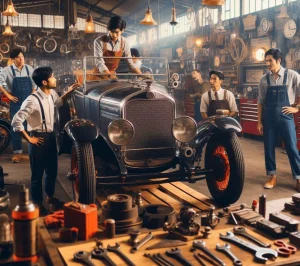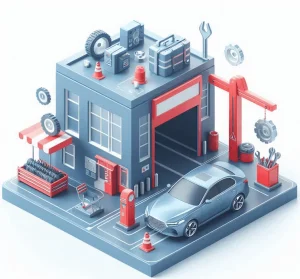Table of Contents
Car Buyer Buying a car is a significant investment and an exciting milestone. However, the process can be overwhelming with the myriad of choices and considerations involved. To help you navigate this journey smoothly and make an informed decision, we’ve compiled an essential checklist for every Car Buyer. Follow these steps to ensure that you drive away with the best vehicle for your needs and budget.

1. Define Your Needs and Budget
Identify Your Requirements
Before you start shopping, take some time to clearly define what you need from a vehicle. Consider the following factors:
- Purpose: Are you looking for a daily commuter, a family car, or a vehicle for off-road adventures?
- Size: Do you need a compact car, an SUV, or a minivan?
- Features: What features are essential for you? Think about safety features, fuel efficiency, technology, and comfort.
Set a Realistic Budget
Determine how much you can afford to spend, including the purchase price, insurance, taxes, and registration fees. It’s also wise to set aside some money for maintenance and unexpected repairs.
- Financing Options: Explore financing options and get pre-approved for a loan if necessary. Knowing your budget and financing limits will help you stay within your financial boundaries.
2. Research Your Options
New vs. Used Cars
Decide whether you want a new or used car. Each option has its pros and cons:
- New Cars: Offer the latest features, warranties, and customization options but come with a higher price tag.
- Used Cars: More affordable and with a lower depreciation rate but may have higher maintenance costs and limited warranties.
Compare Models
Use online resources to compare different makes and models that fit your criteria. Websites like Kelley Blue Book, Edmunds, and Consumer Reports provide detailed reviews, ratings, and comparisons.
Check Reliability and Reviews
Look for reviews and reliability ratings from trusted sources. Owner reviews can provide insights into common issues and the overall satisfaction with the vehicle.
3. Inspect and Test Drive
Vehicle History Report
For used cars, always request a vehicle history report. This report will provide information about previous ownership, accidents, and service history.
Physical Inspection
Whether new or used, inspect the Car Buyer thoroughly:
- Exterior: Check for any dents, scratches, or signs of rust. Ensure the tires are in good condition.
- Interior: Inspect the seats, dashboard, and carpets for wear and tear. Test all the controls and electronics.
- Under the Hood: Look for any leaks, corrosion, or worn belts. Check the oil and fluid levels.
Test Drive
Never skip the test drive. It’s your opportunity to evaluate how the Car Buyer performs and feels on the road. Pay attention to:
- Comfort and Visibility: Ensure you are comfortable and have good visibility.
- Performance: Test the acceleration, braking, and handling. Listen for any unusual noises.
- Technology and Features: Test all the features, including the infotainment system, air conditioning, and safety systems.
4. Verify Ownership and Documentation
Title and Registration
For used cars, verify the title and registration documents. Ensure the title is clear and there are no liens on the vehicle.
Warranty and Service Records
Check if the Car Buyer is still under warranty and request service records. A well-documented service history is a good indicator of a well-maintained vehicle.
Confirm the VIN
Ensure the Vehicle Identification Number (VIN) on the Car Buyer matches the VIN on the title and service records. This helps verify the car’s identity and history.
5. Negotiate the Price
Research the Fair Market Value
Before negotiating, research the fair market value of the car. Use resources like Kelley Blue Book and Edmunds to get an idea of the average price for the make, model, and year.
Be Prepared to Walk Away
If the price isn’t right or the seller is unwilling to negotiate, be prepared to walk away. There are plenty of cars available, and it’s important to stick to your budget.
Additional Costs
Be aware of additional costs such as taxes, registration fees, and any dealer fees. Factor these into your budget when negotiating the final price.
6. Finalize the Purchase
Review the Contract
Read the contract carefully before signing. Ensure all agreed-upon terms are included, and there are no hidden fees or unexpected conditions.
Arrange for Payment
Arrange for payment based on your financing plan. Whether paying in full, financing, or leasing, ensure all payment details are clear and agreed upon.
Transfer Ownership
Complete the necessary paperwork to transfer ownership. This includes the title transfer, registration, and updating your insurance policy to cover the new vehicle.
7. Post-Purchase Essentials
Register the Car
Register your new car with your local DMV. This process includes paying registration fees and obtaining new license plates.
Get Insurance
Update your insurance policy to include your new car. Shop around for the best rates and ensure you have adequate coverage.
Schedule Regular Maintenance
Follow the manufacturer’s maintenance schedule to keep your Car Buyer in good condition. Regular maintenance helps prevent major issues and extends the life of your vehicle.
Car Buyer
Buying a car is a significant decision that requires careful planning and consideration. By following this essential checklist, every Car Buyer can navigate the process with confidence and ensure they make a wise investment. From defining your needs and budget to finalizing the purchase and beyond, these steps will help you find the perfect car that meets your requirements and provides years of driving pleasure. Happy car shopping!





More Stories
Why Enclosed Car Shipping is Essential for Your High-Value Vehicle
The Ultimate Guide to Choosing the Perfect Helmet for Men
Cash for Cars: The Smart Way to Sell Your Junk Car in Dallas, TX